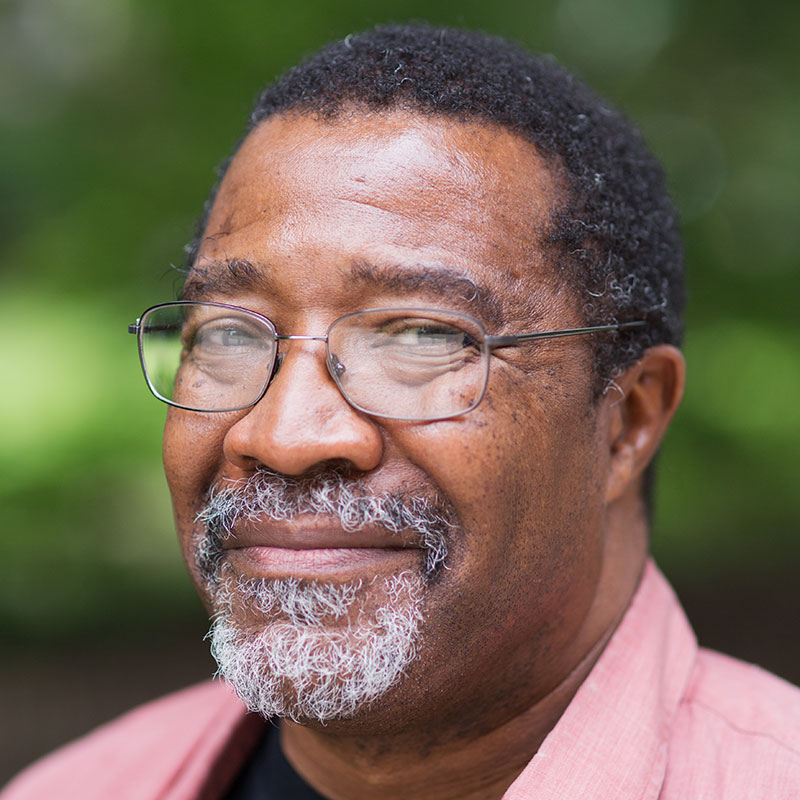The Evidence of Things Unseen builds upon a mini course that considered the use (and potential abuse) of DEI data whereby identified individuals may subsequently be targeted. Due to the ease of overt identification of peoples’ responses to DEI-related questionnaires concerning experiences, job satisfaction, status, and attitudes, the cost of protecting an individual’s privacy is that they are at extreme risk of becoming invisible so that policy decisions based on such questionnaires are poorly informed. The course explored a variety of ways to express, as well as suppress (through de-identification), such data within and across different media to support accurate and informative summaries of DEI data without infringing upon an individual’s privacy.
The FEAST project asks “how can we distinguish differences in DEI data without targeting specific individuals who comprise such data?” The student team will focus on the use of sound and color to represent individuals who exist across multiple axes of physical, emotional, cultural and social divergent identities. Issues of privacy, implicit bias in algorithms that are used in data science and social media, and algorithmic justice will help guide the team. Data visualization and sonification technologies will be considered particularly with respect to an individual’s perceptual salience that emerges when multiple data streams are overlayed. Sources of data will include SoundRocket’s presentations of DEI activities from the School of Social Work. These data will, in turn, be processed through the systems developed by the team and their impact will be assessed.
Meeting Details
Fridays, 9:00-10:30am
In-person/Hybrid/Virtual
Students apply to a specific role on team as follows:
Social Scientist (2 Students)
Preferred Skills: Skills/experience providing confidentiality and security protocols for persons with multiple identifiable DEI characteristics
Likely Majors/Minors: AAS, AMCULT, ANTHARC, CS, DATA, POLISCI, PSYCH, SI, SOC, SW, WGS
Digital/Cyber Security (1 Student)
Preferred Skills: Skills in protecting related infrastructure, including architecting cloud-based security, securing data and information and running risk analysis and mitigation
Likely Majors/Minors: ARCH, CS, DATA, POLISCI, SI
Audio Programmer (2 Students)
Preferred Skills: Educational requirements are flexible; entry-level audio programmers should have some prior game or related audio experience, thorough knowledge of several key coding languages, and basic audio engineering skills.
Likely Majors/Minors: CE, CS, EE, PAT
Data Science (Visualization & Sonification) (2 Students)
Preferred Skills: Team members should be very familiar with building visual and audio projects, e.g. have a clear understanding of programming concepts, data structures, and algorithms.
Likely Majors/Minors: ARTDES, CS, PAT, SI
Modeling & Visualization (2 Students)
Preferred Skills: Team members in this role will be the leaders for creating digital models of the alphanumeric spaces. Members in this role should have a background in programing languages, software, or animation techniques that allows for multi-dimensional visualization.
Likely Majors/Minors: ARCH, ARTDES, CS, SI
Social Worker (2 Students)
Preferred Skills: Team members in this role will be familiar with the challenges in promoting privacy yet efficient communication of needs of persons with multiply identifiable DEI characteristics
Likely Majors/Minors: AAS, AMCULT, PSYCH, SOC, SW, WGS
Faculty Project Lead
 Professor Larry Gant’s research focuses on program evaluation of small and moderate-size human service and social action organizations in urban communities; the creation, implementation, and evaluation of community-based health promotion initiatives in the areas of early childhood development, substance abuse prevention, sexually transmitted diseases, and HIV/AIDS; the implementation and evaluation of community information technology centers; the creation, implementation, and evaluation of community-based high speed wireless access initiatives and the study of urban comprehensive community-based initiatives. His research has been based in southeastern Michigan cities and communities; the states of Illinois, California, and Ohio; and internationally in Niger, Nigeria, South Africa, and China.
Professor Larry Gant’s research focuses on program evaluation of small and moderate-size human service and social action organizations in urban communities; the creation, implementation, and evaluation of community-based health promotion initiatives in the areas of early childhood development, substance abuse prevention, sexually transmitted diseases, and HIV/AIDS; the implementation and evaluation of community information technology centers; the creation, implementation, and evaluation of community-based high speed wireless access initiatives and the study of urban comprehensive community-based initiatives. His research has been based in southeastern Michigan cities and communities; the states of Illinois, California, and Ohio; and internationally in Niger, Nigeria, South Africa, and China.
Gant has a strong interest in the role of the arts in the community and in the classroom. He has created and piloted a program in Beijing that uses visual and performing arts to access HIV/AIDS education. He is working to leverage the School of Social Work’s art collection as a teaching tool, and to restructure vacated library space into a dynamic creative work environment where visual arts will play a key role.
Gant’s research has been supported by the National Institutes of Health, Centers for Disease Control and Prevention, and numerous national and international private foundations. He is also a member of the SSW Community Organization Learning Community. Other areas of research/scholarly interest: community organization and social planning; public health social work, regional food systems, community supported agriculture, arts-based community development.
Students: 11
Likely Majors/Minors: AAS, AMCULT, ANTHARC, ARCH, ARTDES, CE, CS, DATA, EE, PAT, POLISCI, PSYCH, SI, SOC, SW, WGS
Meeting Details: Fridays, 9:00-10:30am
Application: Consider including a link to your portfolio or other websites in the personal statement portion of your application to share work you would like considered as part of your submission.
Summer Opportunity: Summer research fellowships may be available for qualifying students.
Citizenship Requirements: This project is open to all students on campus.
IP/NDA: Students who successfully match to this project team will be required to sign an Intellectual Property (IP) Agreement prior to participation.
Course Substitutions: CoE Honors
